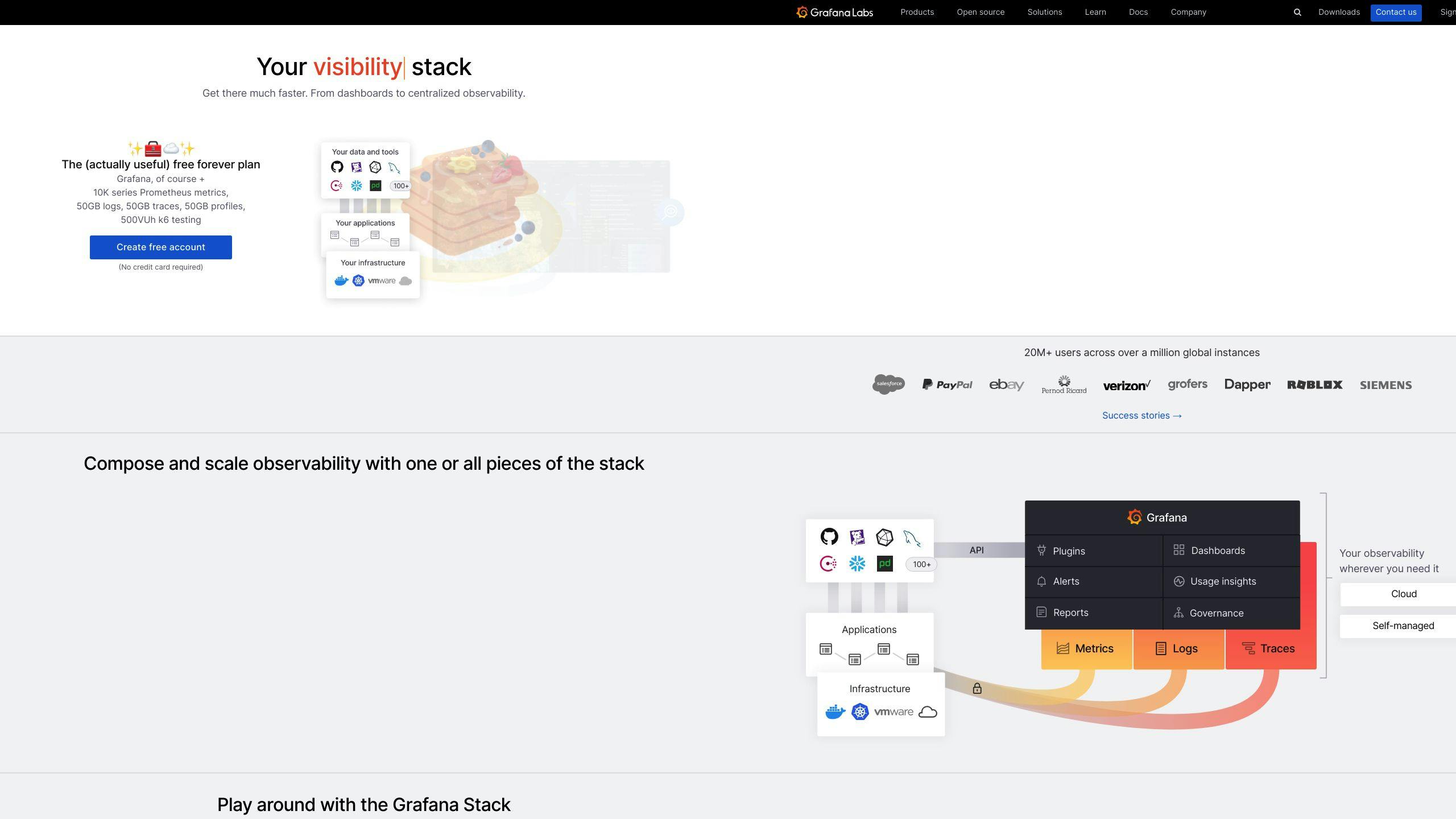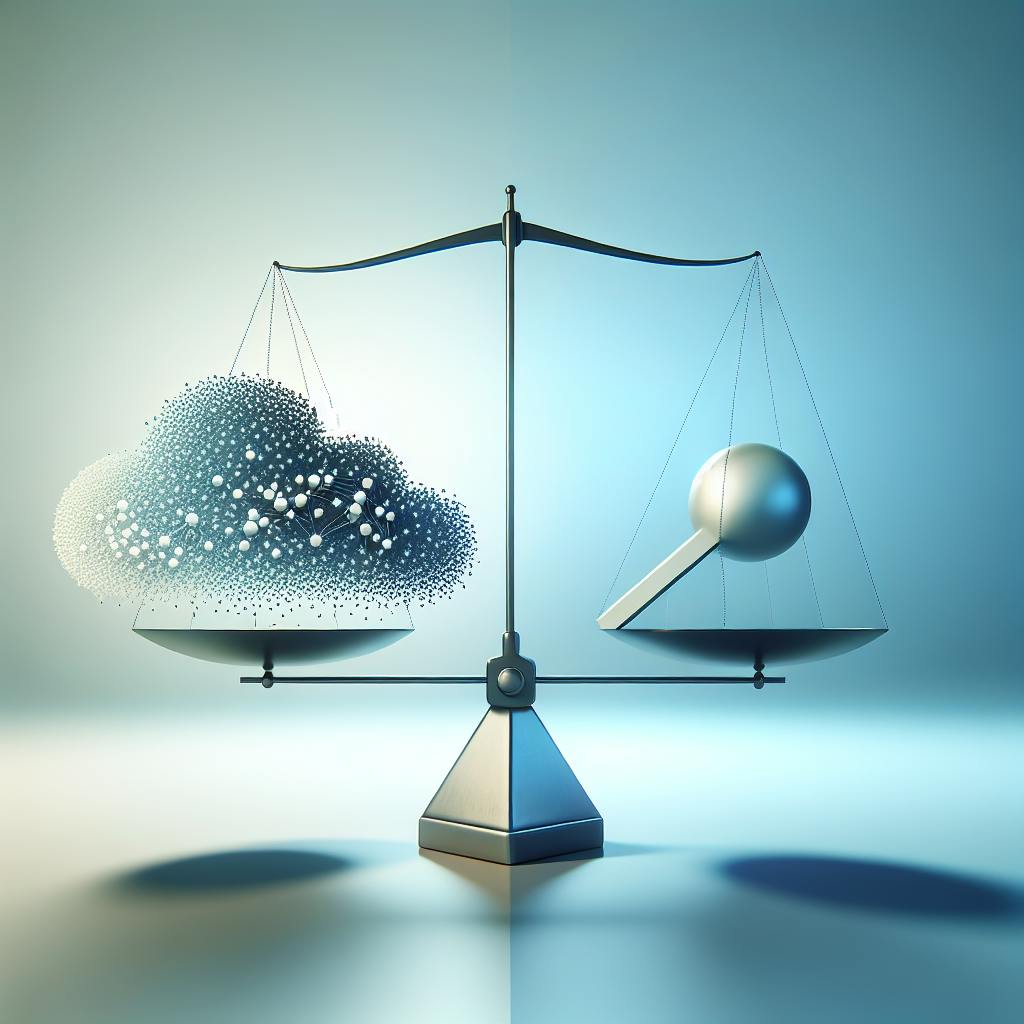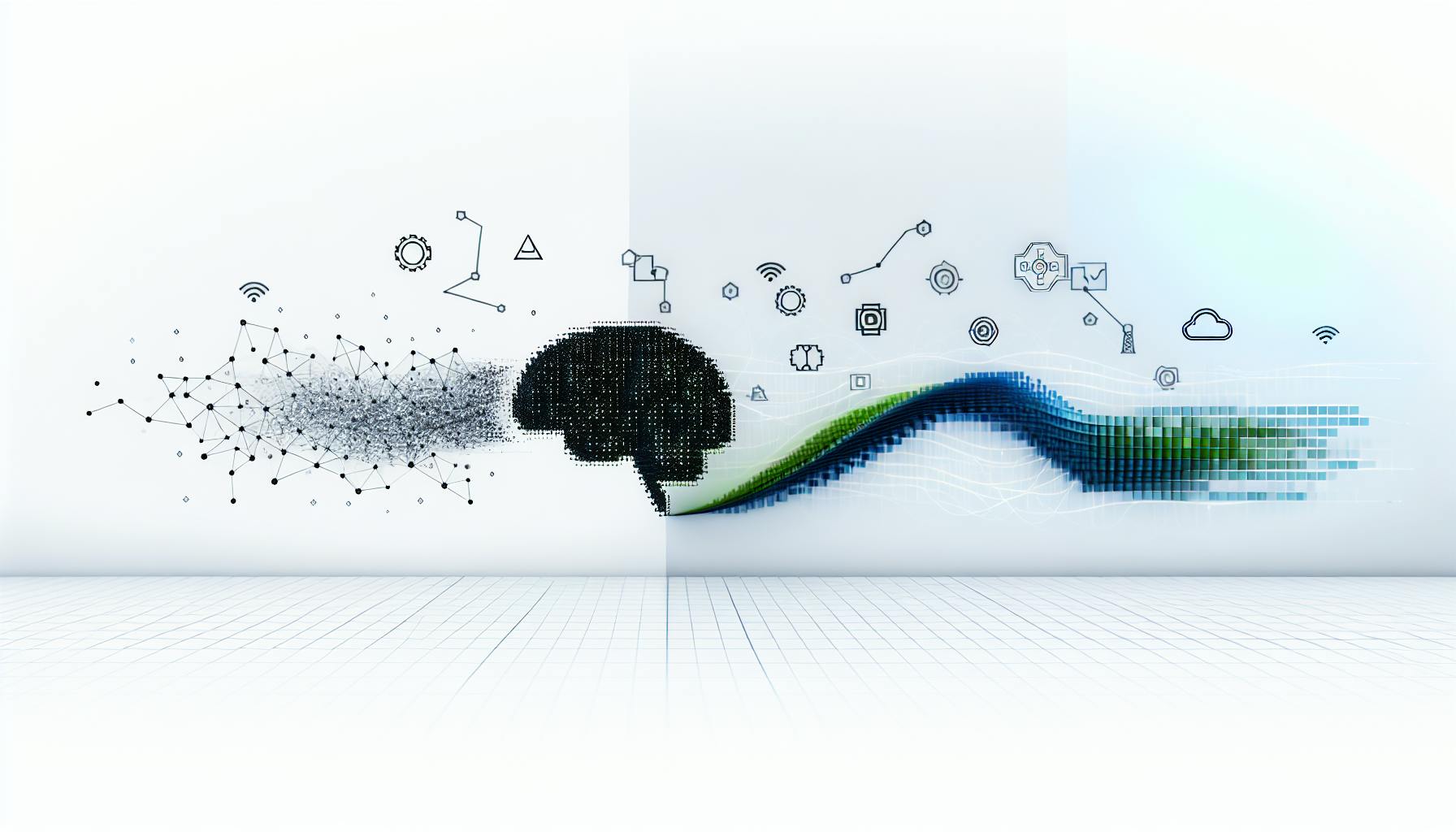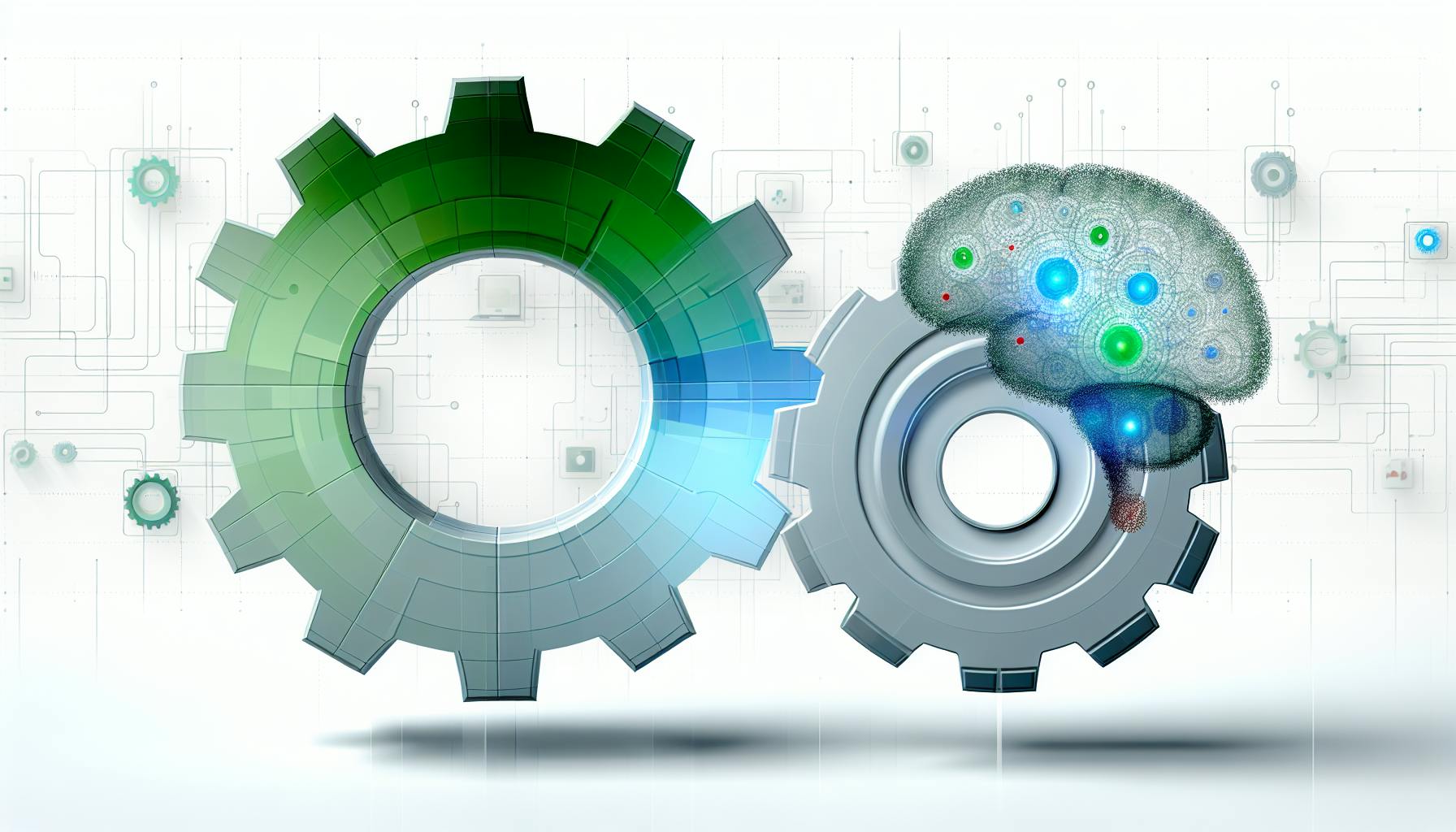Combining Eyer AIOps and Grafana can revolutionize IT management. Here's what you need to know:
- Eyer AIOps uses AI to improve IT operations
- Grafana is a tool for analyzing and monitoring IT systems
- Together, they offer:
| Benefit | Description |
|---|---|
| Better visibility | Clear view of complex IT systems |
| Faster problem-solving | Quick issue identification and resolution |
| Improved teamwork | Enhanced collaboration between departments |
| Smarter decisions | Data-driven decision making |
| Faster progress | Accelerated adoption of new technologies |
Eyer AIOps provides AI-powered insights, while Grafana excels at data visualization. This integration offers a powerful solution for modern IT management, combining AI smarts with user-friendly dashboards.
Quick Comparison:
| Feature | Eyer AIOps | Grafana |
|---|---|---|
| Main focus | AI for IT operations | Data visualization |
| Problem detection | AI-based | Rule-based |
| Ease of use | Requires AIOps knowledge | User-friendly |
| Integration | Mainly AIOps tools | Many data sources |
By using Eyer AIOps and Grafana together, companies can better manage their IT systems, spot issues early, and make informed decisions quickly.
Related video from YouTube
1. Eyer AIOps

Eyer AIOps uses AI to make IT operations better. It combines machine learning and big data analysis to help companies manage their IT systems more easily.
Data Visualization
Eyer AIOps shows data clearly. It gives health scores for different systems like:
| System Type | What It Measures |
|---|---|
| Servers | How well they're working |
| Storage | How much space is used |
| Data Protection | How safe the data is |
| Hyper-converged appliances | How well they perform |
| Network components | How well they're connected |
These scores look at how each part is set up, how much it can handle, how well it works, and how safe the data is. This helps IT teams see important information quickly without having to search through lots of data.
Spotting Problems
Eyer AIOps is good at finding unusual things in IT systems. It uses AI to spot issues like:
- When storage is almost full
- When systems are working too hard
- When things are slower than usual
This helps companies fix problems before they get big, keeping systems running smoothly.
Handling Issues
Eyer AIOps makes dealing with IT problems easier by:
1. Connecting related events to reduce unnecessary alerts
2. Suggesting ways to fix issues
3. Giving tasks to staff to solve problems
4. Automatically fixing some issues across different tools
This helps solve problems faster and stops different teams from doing the same work twice.
Setting It Up
Adding Eyer AIOps to existing IT systems can be tricky. It needs to work with many different tools and processes. Companies need to think about the tools they already use for:
- Checking how well apps are working
- Managing system logs
- Looking after databases
- Monitoring IT systems
Making Eyer AIOps work well means bringing all these different parts together carefully.
2. Grafana

Grafana is a free tool that helps IT teams watch and understand their systems. It shows data in easy-to-read pictures and works with many different data sources.
Data Visualization
Grafana turns complex IT data into clear graphs. Users can make dashboards that show important information like:
| Information Type | What It Shows |
|---|---|
| Server health | How well servers are working |
| CPU usage | How much of the computer's brain is being used |
| Memory use | How much computer memory is being used |
| Network traffic | How much data is moving through the network |
| App performance | How well apps are running |
| Database speed | How fast databases are working |
These dashboards help IT teams quickly see what's happening in their systems.
Finding Unusual Things
Grafana helps spot problems before they get big by:
- Looking at data as it comes in
- Setting up warnings for specific issues
- Noticing strange patterns in system information
This helps keep systems running smoothly.
Dealing with Problems
Grafana makes handling IT issues easier with:
- A system for sending out warnings
- Ways to change how warnings are sent
- Working with common communication tools
This helps teams fix problems faster.
Setting It Up
Getting Grafana ready can be tricky:
1. Putting it on a server or in the cloud
2. Making sure it's safe to use
3. Connecting it to data sources (like Prometheus or InfluxDB)
4. Making dashboards that show what you need
Even though it takes work to set up, Grafana can work with many different types of IT systems.
sbb-itb-9890dba
Strengths and Weaknesses
Let's compare Eyer AIOps and Grafana integration by looking at what they do well and where they could improve:
| Feature | Eyer AIOps | Grafana |
|---|---|---|
| Main focus | AI for IT operations | Showing data clearly |
| Data pictures | Basic | Many options |
| Finding problems | Uses AI | Based on set rules |
| Handling big systems | Made for large setups | Works with many data sources |
| Working with other tools | Mostly AIOps tools | Many different data tools |
| How easy to learn | Needs AIOps knowledge | Easy to use, lots of help available |
Grafana is good at:
- Making clear data pictures
- Working with many data sources
- Setting up alerts
But it doesn't collect or store data itself.
Eyer AIOps is good at:
- Using AI for IT work
- Finding unusual patterns
We don't have all the details about Eyer AIOps, but AIOps tools usually help spot issues using AI.
Using Eyer AIOps and Grafana together could mix their good points. This could make watching IT systems better by adding AI smarts to Grafana's good data pictures.
Summary
Using Eyer AIOps and Grafana together helps companies manage their IT systems better. Here's what this combination can do:
| Benefit | Description |
|---|---|
| Better view of systems | Shows data from many sources in one place |
| Finds problems early | Spots issues before they cause trouble |
| Makes systems work better | Uses AI to suggest improvements |
| Watches everything | Keeps an eye on all parts of IT |
| Helps make good choices | Gives clear info for quick decisions |
Let's look at each benefit:
- Better view of systems: Eyer AIOps and Grafana work together to show all your IT info in one place. This makes it easier to understand what's happening.
- Finds problems early: The AI in Eyer AIOps can spot odd things in your systems. This helps fix issues before they cause big problems.
- Makes systems work better: By looking at lots of data, Eyer AIOps can suggest ways to improve your IT setup. Grafana shows these ideas clearly.
-
Watches everything: This combo keeps track of all parts of your IT, like:
- How well apps are working
- If the systems are healthy
- What's in the logs and event records
- How the network is doing
- Any security issues
-
Helps make good choices: By putting all the info in easy-to-read Grafana charts, IT teams can make smart choices quickly. This leads to:
- Fixing problems faster
- Using resources wisely
- Better IT service overall
Using Eyer AIOps and Grafana together gives companies a smart way to manage their IT. It helps them see issues, fix problems, and make their systems work better.
FAQs
What are the key benefits of AIOps?
AIOps helps companies manage their IT systems better. Here's what it does:
| Benefit | Description |
|---|---|
| Better IT service | Helps IT teams work more smoothly |
| Less downtime | Keeps systems running more often |
| More efficient | Gets more work done with less effort |
| Sees future issues | Spots problems before they happen |
| Saves money | Cuts costs by working smarter |
AIOps uses AI to:
- Look at lots of data quickly
- Fix problems faster
- Find issues before they cause trouble
- Use resources wisely
Is Grafana open-source and good for all databases?
Yes, Grafana is open-source and works with many databases. Here's what you need to know:
- It's free to use
- You can change it to fit your needs
- It works with lots of different data sources
- You can make your own add-ons for it
- It shows data from many databases in one place
How are Splunk and Grafana different?

Splunk and Grafana are both useful for watching IT systems, but they do different things:
| Feature | Grafana | Splunk |
|---|---|---|
| Main job | Shows data in charts | Manages logs and keeps systems safe |
| Best for | Making dashboards | Looking at lots of log data |
| What it covers | Mostly showing data | Watching whole IT systems |
Both tools help businesses see what's happening in their IT setup, but they're good at different tasks.



